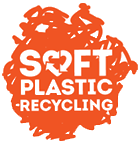Soft plastic recycling comes to Whanganui
Lyn Mayes, Soft Plastic Recycling Scheme manager says the whole team is proud to be able to bring the Scheme to Whanganui.
“We’ve had considerable requests from locals wanting us to bring soft plastics recycling to Whanganui and the Council has been instrumental in helping us achieve this by supporting the partnership with the Resource Recovery Centre.
“It truly is a team effort as the network is multi-layered and significant logistical planning is required – from retailers and their staff managing the bins in store, collectors having capacity to store and bale soft plastics, and matching what we collect with the demand from the three New Zealand processing plants,” says Ms Mayes.
Whanganui Mayor, Andrew Tripe, says it's great to see another new initiative in place to help reduce our waste and create a more circular economy with a focus in the future of being a low waste district.
"With kerbside recycling also soon to be launched, it's exciting that we're also closing the loop on soft plastic. By recycling your soft plastic, you'll be reducing plastic going to landfill and help create an extremely useful product – fence posts!"
To celebrate the return of soft plastic recycling to the region, the Scheme, is giving away a Future Post garden bed made from approximately 14,000 bread bags to The Warehouse’s chosen recipient, Women’s Refuge, so they can start their very own garden with garden products supplied by The Warehouse.
The Scheme has experienced considerable growth in recent months having launched in Marlborough, Nelson, and Tasman regions; as well as throughout the wider Otago and Central Otago regions (Dunedin, Mosgiel, Queenstown, Alexandra and Wanaka).
In the last year the Scheme collected 705 tonnes of post-consumer soft plastic – the equivalent of 100 million bags or wrappers, and enough to be made into 70,000 Future Posts. All the soft plastic collected through the Scheme is recycled here in New Zealand.
With the addition of Whanganui joining the soft plastic collection service, more than 86% New Zealanders have access to a soft plastic recycling bin within 20km home or work.
Ms Mayes adds that over the last 12 months, the Scheme has reached 300 drop off locations with Scheme members also placing over 100 collection bins at their premises for use by their staff which is incredible and reflects the growing interest in soft plastic recycling, and the need to divert as much waste away from landfill as possible.
Phil Cumming, Group Sustainability Lead at The Warehouse Group says: “The Warehouse is really pleased to be able to support the local community with a new soft plastics recycling bin in our Whanganui store. We want to help our customers make easier, more affordable, and more sustainable choices so having an easy and accessible place to recycle soft plastics is one great way we can do this. We’re proud to now have 47 stores across New Zealand that are part of the Soft Plastic Recycling Scheme with The Packaging Forum.”
Group Manager for Manawatu Woolworths New Zealand, Shaun Wall, says: “Working towards a cleaner and greener Aotearoa benefits all. Woolworths New Zealand are thrilled to grow our soft plastic recycling availability. Working with groups like the Soft Plastics Recycling Scheme is just one way in which we can align ourselves with organisations that benefit our planet.
This step towards a more sustainable future is core to Woolworth New Zealand’s values and goals. Providing convenient collection points in our stores empowers customers to reduce their environmental impact of single-use plastics. We are proud to partake in these steps that will safeguard our planet for future generations,” says Mr Wall.
Rob Langford, CEO, The Packaging Forum (operator of the Soft Plastic Recycling Scheme - SPRS) says the Soft Plastic Recycling Scheme is a voluntary product stewardship scheme run and funded 100 percent by members.
“Growing the Soft Plastic Recycling Scheme demonstrates our commitment to leverage partnerships to overcome challenges and deliver industry led solutions. The Packaging Forum operates several additional recycling schemes, including programmes for glass as well as food and beverage cartons, and is working on another solution for plastic and metal caps and lids. These schemes, just like our Soft Plastic Recycling Scheme, are real examples of how industry can voluntarily collaborate and succeed in its responsibility to deal with the end-of-life recovery for packaging,” says Mr Langford.
The Soft Plastic Recycling Scheme has over 200 members representing more than 80% of post-consumer soft plastic packaging consumed by the food and grocery sector annually. The Scheme pays for the costs of collection from consumers through to paying the processors to recycle the plastic.

